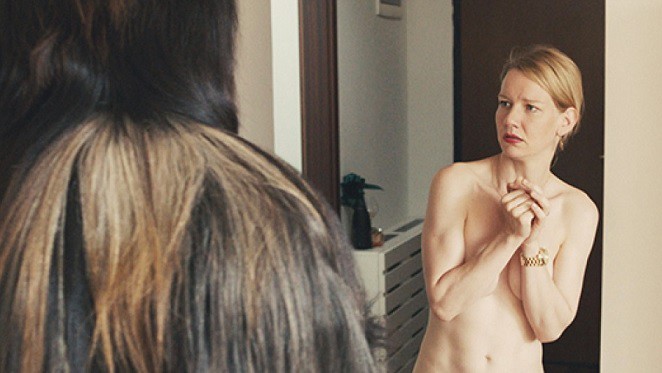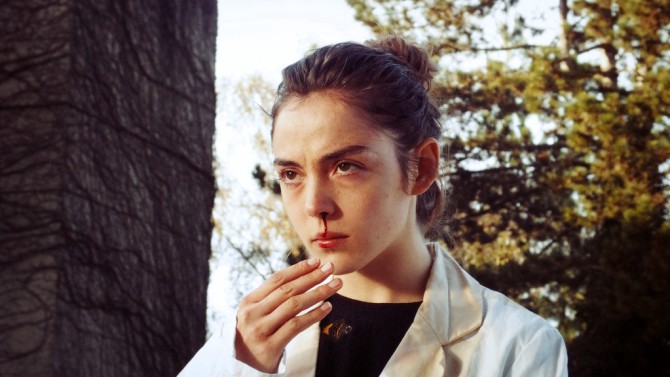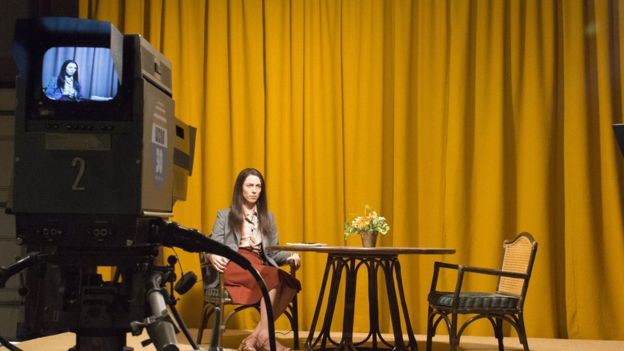
The Toronto International Film Festival’s program is stacked. While our TIFF preview collected highlights from the slate, there were literally dozens of worthy titles omitted.
This year marks my second time covering the fest, and once again, I’m overwhelmed by the screening options. There’s simply too much to choose from, and while this is a great problem to have, it means that I can’t catch everything I’d like to — or even come close. Last year I was overly ambitious with my schedule and ended up burning out, so I’ve learned to take it a little easier this time around. I’m seeing lots, but giving myself time to digest what I’m watching — and to sleep.
One of the most pleasant surprises at TIFF is the number of films I’ve seen with unconventional nudity. For starters, penises! As “Game of Thrones” star Emilia Clarke has declared, it’s time that we “free the penis.” Women — and young women in particular — are highly sexualized in films, but it remains extremely rare to catch a glimpse of a penis in film or TV. Full frontal nudity is not terribly uncommon for women onscreen, which is certainly not the case for men. MPAA ratings have long suggested that penises are much more inappropriate or shocking than vulvas, for some unarticulated reason. I’ve seen 12 films at TIFF so far, and three have included the all-too-elusive appendage. Prior to TIFF, I can’t recall the last time I saw a penis in a movie or TV series. So hopefully Khaleesi’s dream is coming true.

It’s also been refreshing to see nudity outside of sexualized contexts — bodies just being bodies. I’m thinking of Kelly Reichardt’s “Certain Women” and Maren Ade’s “Toni Erdmann” here. These movies feature female nudity in a way that’s comparable to entering a locker room at the gym. It’s nice to see someone presented without clothes where the director isn’t trying to entice the audience, and it doesn’t feel at all gratuitous.
The sex scenes in Andrea Arnold’s “American Honey” stand out. They feel very real, for better and for worse. In one scene, the main character tells the man she’s having sex with, “Hold on a second,” and proceeds to remove a tampon and quickly ask if he minds. (He doesn’t.) It’s a very brief moment, but it left a major impression. I have never seen anything like that in a movie or TV show, and it’s not something I’ll soon forget.
“American Honey” is a real sight to behold in general, and that’s partly due to its realistic looking cast. These actors look like American teenagers — not the poreless American teenagers in “Teen Vogue.” It really adds to the realism in the film. (Alison Maclean’s “The Rehearsal,” set in a drama school, also features a cast that looks like people you’d encounter on the street as opposed to New York Fashion Week.)

I was bowled over by “Raw,” French director Julia Ducournau’s ambitious and self-assured debut feature. The horror film centers on Justine (Garance Marillier), a gifted student training to be a vet. She’s a vegetarian who reluctantly tries meat during a hazing ritual. The incident leaves Justine with an insatiable appetite for meat — and her impulse to consume flesh escalates to a degree that’s not only socially unacceptable, but illegal. Hint hint. “Raw” is smart, sexy, scary, and unexpectedly moving. It works — and it works remarkably well. Fans of “Ginger Snaps” will find a worthy successor in the film, which made its World Premiere at Cannes earlier this year. While female directors are underrepresented period, it’s especially rare to find female-helmed horror films. “Raw” tackles sexuality, sisterhood, and friendship, and is tender, vicious, and funny. I can’t wait to see what Ducournau, who also penned the script, does next.

I’ve seen a number of outstanding, Oscar-worthy performances. Rebecca Hall is painful to watch as newscaster Christine Chubbuck in “Christine.” Christine struggles at work and in her personal life, and Hall does a fantastic job of depicting her awkwardness without even the slightest trace of maliciousness in her portrayal. It’s so evident that she feels for her character, and she makes it impossible not to empathize with her, even when Christine is being unreasonable or oblivious. She’s simply heartbreaking.
The always-great Michelle Williams turns in two excellent supporting performances in “Manchester by the Sea” and “Certain Women.” She doesn’t have much screen time in the former, but that hasn’t stopped buzz about a potential Oscar nom for the tragedy. It’s difficult to say much about her role without giving crucial plot points away, but she plays the ex-wife of the main character (Casey Affleck). Her characters in “Manchester by the Sea” and “Certain Women” are very different from one another, and she nails both.
I haven’t had the chance to see “Arrival” yet, but Amy Adams wows in “Nocturnal Animals,” as does the rest of the cast. Because the film incorporates flashbacks, Adams is essentially playing two versions of her character — a young, optimistic aspiring artist who rejects her mother’s conservatism, and a soon-to-be middle age art dealer unhappy with her marriage and job. Jena Malone (“The Hunger Games” franchise) has a super small role in the film, but is totally hilarious and delighted the audience during her brief time onscreen.
“American Honey’s” Sasha Lane makes a stunning big-screen debut. Her expressive face and frenetic energy fuel the nearly three-hour film.
Rooney Mara impresses in “Una,” based on the play “Blackbird.” She plays a young woman who confronts the man that sexually abused her fifteen years ago. As the premise suggests, the drama is dark and tense. Mara is both fierce and fragile, and continues to show great range after standout performances in “The Girl with the Dragon Tattoo” and “Carol.”
I’m based in Toronto, so I’ll be TIFF-ing until the festival concludes on September 18. My most anticipated titles for the coming days include “Jackie,” starring Natalie Portman as Jacqueline Kennedy, Susan Johnson’s coming-of-age story “Carrie Pilby,” and Ana Lily Amirpour’s dystopian cannibal tale “The Bad Batch.”







